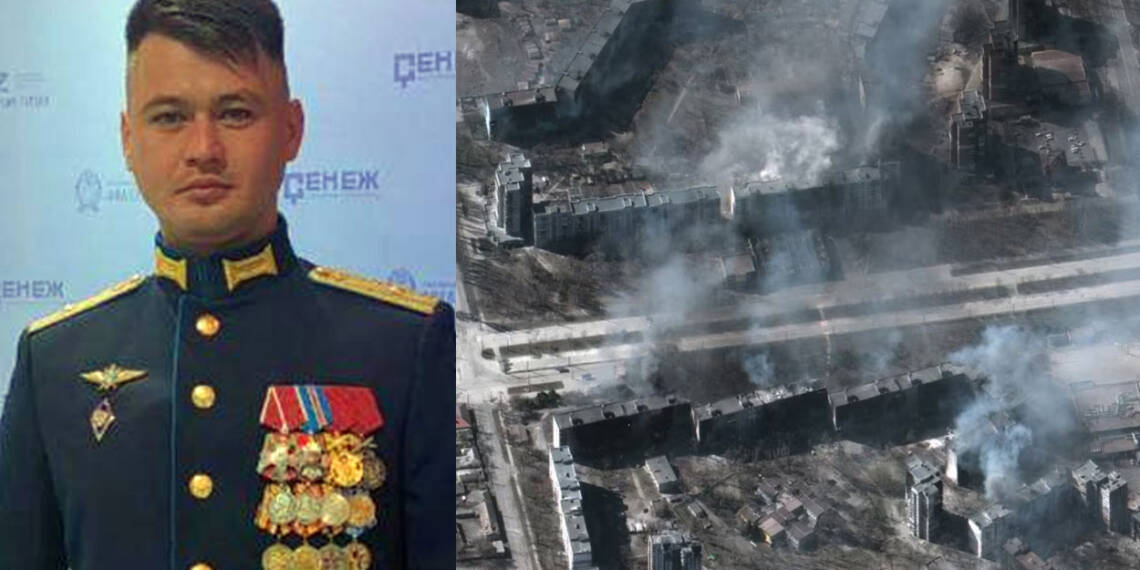On the night of May 28–29, 2025, Zaur Gurtsiev, the deputy mayor of Stavropol and a prominent figure in Russia’s “Time of Heroes” initiative, was killed in a suspected suicide bombing in southern Russia. The attack occurred on Chekhov Street in Stavropol, resulting in the deaths of Gurtsiev and Nikita Penkov, a 29-year-old man who allegedly detonated the explosive device. CCTV footage shows Penkov approaching Gurtsiev minutes before midnight, with an explosive in Penkov’s bag detonating shortly thereafter. Russian investigators are considering various theories, including possible Ukrainian involvement, though no official claims have been made.
Why Was Gurtsiev Targeted?
Gurtsiev, 34, was a decorated Russian military officer who played a significant role in the 2022 assault on Mariupol, a campaign that resulted in widespread destruction in Ukraine. His involvement in directing missile strikes and leading airborne operations during the siege earned him several military distinctions from President Vladimir Putin. Despite being labeled a war criminal by critics, Russian media portrayed him as a “war hero” who improved missile targeting during the siege.
In September 2024, Gurtsiev was appointed as the first deputy mayor of Stavropol as part of the Kremlin’s “Time of Heroes” program, which aimed to integrate veterans of the war into government positions. His new role made him a high-profile target, and the targeted nature of the attack suggests a politically motivated action against a prominent figure associated with the war.
Ukraine Response
As of now, Ukrainian officials have not officially claimed responsibility for the attack. However, the incident follows a pattern of high-profile attacks on Russian military figures and collaborators linked to the invasion of Ukraine. For instance, in December 2024, Lieutenant General Igor Kirillov, head of Russia’s nuclear defense forces, was killed in an explosion in Moscow, with some Russian officials accusing Ukraine of involvement.
While Ukraine has not publicly acknowledged its role in these incidents, the attacks align with its broader strategy of targeting individuals associated with the Russian military campaign. Ukrainian authorities have previously stated their intent to hold accountable those responsible for war crimes and to disrupt the operations of Russian forces and their collaborators.
Russian Reaction
In response to Gurtsiev’s death, Russian officials have labeled the incident a “terrorist attack” and are investigating potential Ukrainian involvement. The governor of Stavropol emphasized that the theory of the attack having a “Ukrainian influence” is being considered. Dmitry Medvedev, deputy head of Russia’s Security Council, described the attack as an attempt by Kyiv to distract public attention from its military failures and vowed that Russia’s “senior military-political leadership will face inevitable retribution.”
The killing of Zaur Gurtsiev underscores the escalating tensions and the complex dynamics of the ongoing conflict between Russia and Ukraine. While Ukrainian officials have not claimed responsibility for the attack, it reflects the broader strategy of targeting individuals associated with the Russian military campaign. The incident is sure to further strain relations between the two nations as Ukraine continues to up the ante and target Russian officials.








